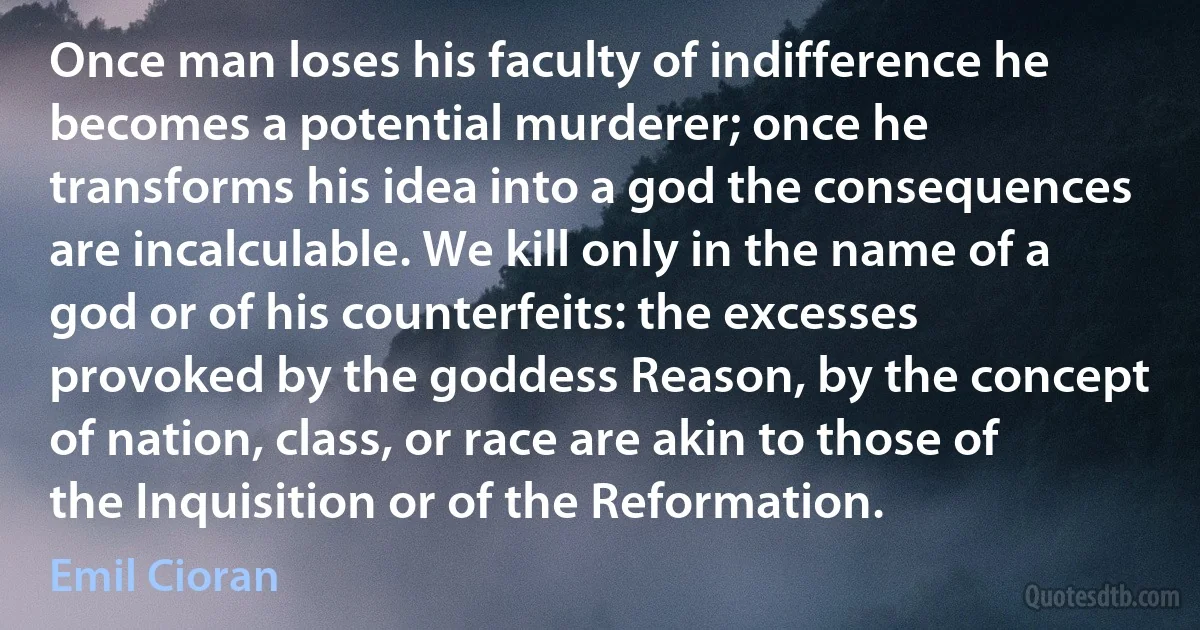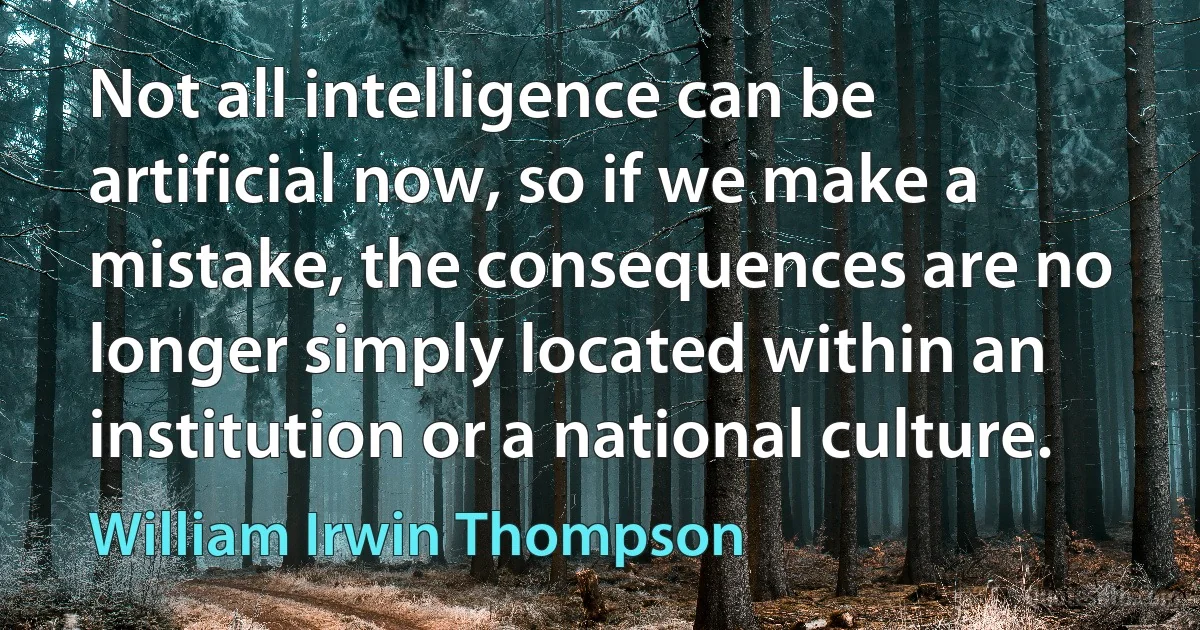Consequences Quotes - page 13
The reason there is very little support for the gold standard is the consequences of those types of market adjustments are not considered to be appropriate in the 20th and 21st century. I am one of the rare people who have still some nostalgic view about the old gold standard, as you know, but I must tell you, I am in a very small minority among my colleagues on that issue.

Alan Greenspan
In the electric age, when our central nervous system is technologically extended to involve us in the whole of mankind and to incorporate the whole of mankind in us, we necessarily participate, in depth, in the consequences of our every action. It is no longer possible to adopt the aloof and dissociated role of the literate Westerner.

Marshall McLuhan
Replacing particles by strings is a naive-sounding step, from which many other things follow. In fact, replacing Feynman graphs by Riemann surfaces has numerous consequences: 1. It eliminates the infinities from the theory. ...2. It greatly reduces the number of possible theories. ...3. It gives the first hint that string theory will change our notions of spacetime. Just as in QCD, so also in gravity, many of the interesting questions cannot be answered in perturbation theory. In string theory, to understand the nature of the Big Bang, or the quantum fate of a black hole, or the nature of the vacuum state that determines the properties of the elementary particles, requires information beyond perturbation theory... Perturbation theory is not everything. It is just the way the [string] theory was discovered.

Edward Witten
We did stop the meltdown. We avoided what would have been, I think, a collapse of the global financial system. That was obviously a good thing. But one thing that I was always sure of and the Federal Reserve was always sure of was that a collapse of some of these big financial firms was going to have very serious collateral consequences. There were people arguing even as late as September 2008, "Well, why don't you just let the firms collapse? There is a system that can take care of it: bankruptcy. Why don't you let them fail?” We never thought that was a good option. Particularly, if the whole system had collapsed, we would have had extraordinarily serious consequences.

Ben Bernanke
It can be tempting to look at the challenges in Iraq and conclude our best option is to pack up and go home. That may be satisfying in the short run, but I believe the consequences for American security would be devastating. If American forces were to step back from Baghdad before it is more secure, a contagion of violence could spill out across the entire country. In time, this violence could engulf the region. The terrorists could emerge from the chaos with a safe haven in Iraq to replace the one they had in Afghanistan, which they used to plan the attacks of September the 11th, 2001. For the safety of the American people, we cannot allow this to happen.

George W. Bush
Decision Points is based primarily on my recollections. With help from researchers, I have confirmed my account with government documents, contemporaneous notes, personal interviews, news reports, and other sources, some of which remain classified. There were instances in which I had to rely on memory alone. If there are inaccuracies in this book, the responsibility is mine. In the pages that follow, I have done my best to write about the decisions I got right, those I got wrong, and what I would do differently if given the chance. Of course, in the presidency, there are no do-overs. You have to do what you believe is right and accept the consequences. I tried to do that every day of my eight years in office. Serving as president was the honor of a lifetime, and I appreciate your giving me the opportunity to share my story.

George W. Bush
Saddam's defiance of United Nations Security Council resolutions demanding the disarmament of his nuclear, chemical, biological, and long-range missile capacity has led to sanctions on Iraq and has undermined the authority of the U.N. For 12 years, the international community has tried to persuade him to disarm and thereby avoid military conflict, most recently through the unanimous adoption of UNSCR 1441. The responsibility is his. If Saddam refuses even now to cooperate fully with the United Nations, he brings on himself the serious consequences foreseen in UNSCR 1441 and previous resolutions.

George W. Bush
When we think of eternity, and of the future consequences of all human conduct, what is there in this life that should make any man contradict the dictates of his conscience, the principles of justice, the laws of religion, and of God? Sir, the nature and all the circumstances of this trade are now laid open to us; we can no longer plead ignorance, we can not evade it; it is now an object placed before us, we can not pass it; we may spurn it, we may kick it out of our way, but we can not turn aside so as to avoid seeing it; for it is bro directly before our eyes that this House must decide, and must justify to all the world, and to their own consciences, the rectitude of the grounds and principles of their decision.

William Wilberforce
A great many individuals ever since the rise of the mathematical method, have, each for himself, attacked its direct and indirect consequences. ...I shall call each of these persons a paradoxer, and his system a paradox. I use the word in the old sense: ...something which is apart from general opinion, either in subject-matter, method, or conclusion. ...Thus in the sixteenth century many spoke of the earth's motion as the paradox of Copernicus, who held the ingenuity of that theory in very high esteem, and some, I think, who even inclined towards it. In the seventeenth century, the depravation of meaning took place... Phillips says paradox is "a thing which seemeth strange"-here is the old meaning...-"and absurd, and is contrary to common opinion," which is an addition due to his own time.

Augustus De Morgan



